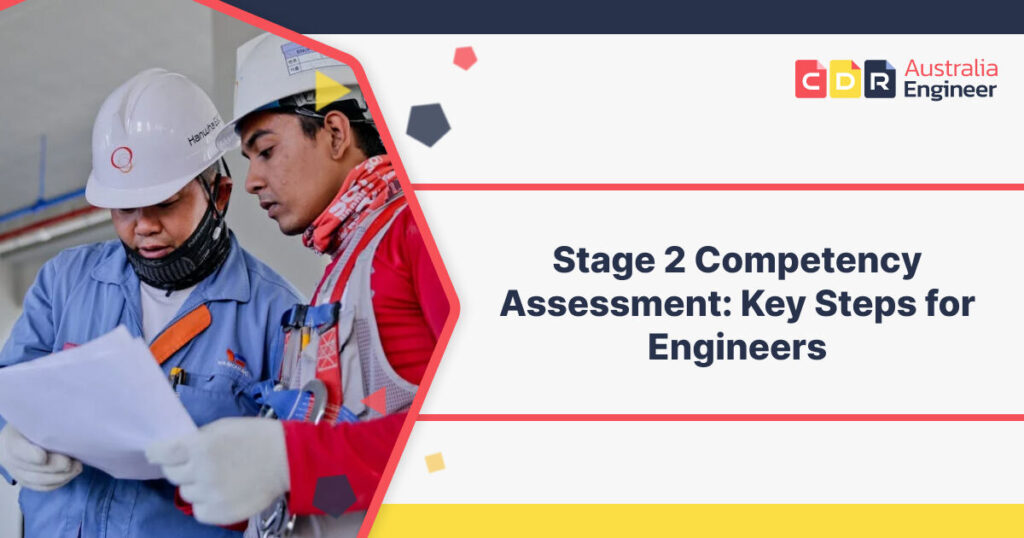

💥🥂 NEW YEAR GRAND DISCOUNT — Save up to 35% on Our Services. Offer Ends at 1st week of Jan
Acquiring the title of Chartered Professional Engineer (CPEng) is an esteemed achievement in engineering. Engineers Australia offers this coveted credential as it recognizes an engineer’s high level of experience, expertise, skills, and professionalism; it serves to validate an engineer’s ability to operate autonomously while adhering to professional conduct standards outlined by Engineers Australia itself. Engineers Australia also utilizes Stage 2 Competency Assessment Standards as the cornerstone for CPEng assessment as well as registration on its National Engineering Registry database.

These standards set out the knowledge base, technical abilities, professional abilities, values, and attitudes engineers need in order to work autonomously. Only engineers of exceptional competency receive CPEng recognition, thus reserving this honor for those possessing superior professional capacity.
Experienced Professional engineers are held to high standards by the public regarding their competency, how they apply their expertise, and their professional conduct. These engineers must thoroughly understand the needs of clients, stakeholders, and society as a whole. Throughout the life cycle of an engineering project or product, they are expected to optimize social, environmental, and economic impacts.
Professional engineers must communicate effectively with people of varying professions and social backgrounds. Their role includes informing society, industry, and government of technological possibilities while making sure engineering contributions fit seamlessly within a project or program context. Furthermore, engineers should make certain both potential outcomes and costs align with the project’s desired goals for optimal decision-making processes.
Experienced engineers play an invaluable role in solving complex problems by synthesizing knowledge from multiple sources to come up with creative solutions that meet risks and sustainability concerns and ensure integration between technical and non-technical factors. Their work must also adhere to established theories while understanding how innovative developments affect established practices within their discipline.
Engineers understand how engineering impacts both people and technology; therefore, their focus can range from increasing knowledge in engineering fields such as robotics or aerospace to creating novel ideas or contributing to regulatory frameworks governing engineering fields, as well as playing an essential part in training future engineers to advance engineering practice and promote future achievements.
Engineers pursuing CPEng status have four distinct assessment pathways through CDRAustraliaEngineer: the Professional Development Program (PDP), Engineering Competency Report (ECR), Mature Experienced Engineer (MEE), and Mutual Recognition Agreement (MRA).
CDRaustraliaengineer specialises in high-quality CDR, RPL and VETASSESS reports for engineers. CDRaustraliaengineer offer low-cost, customized and reliable services in diverse engineering disciplines.
To become a Chartered Member of Engineers Australia, applicants must submit several key documents as evidence of their engineering proficiency. The primary documents required include:
Becoming a Chartered Professional Engineer requires engineers to maintain competence in their chosen practice area throughout their career. Engineers Australia offers a range of resources and support, including networking opportunities, professional development, and access to a community of chartered professionals, to help engineers uphold this commitment.

Creating a CDR Report may be difficult due to Engineers Australia’s standards and rules ( EA ). Our experienced engineers have assisted many people in obtaining approval for their report from the EA via the use of powerful projects.
Becoming a Chartered Professional Engineer requires extensive expertise, training, and professional experience. The Stage 2 Competency Assessment Standards aim to select only those capable of earning the CPEng designation. Engineers have various pathways available, such as PDP, ECR, MEE, or MRA, that allow them to demonstrate competency; once chosen, they must submit comprehensive documentation supporting their engineering skill.
Engineers Australia assists chartered professionals to maintain their competence and professional growth throughout their careers so as to remain leaders in their fields. For assistance with Stage 2 Competency Assessment services such as CDRAustraliaEngineer, provide affordable guidance at reasonable costs reasonable cost additionally, they offer CDR writing, RPL writing, plagiarism checks, career episodes, and approved CDR samples for Engineers Australia membership assessments.